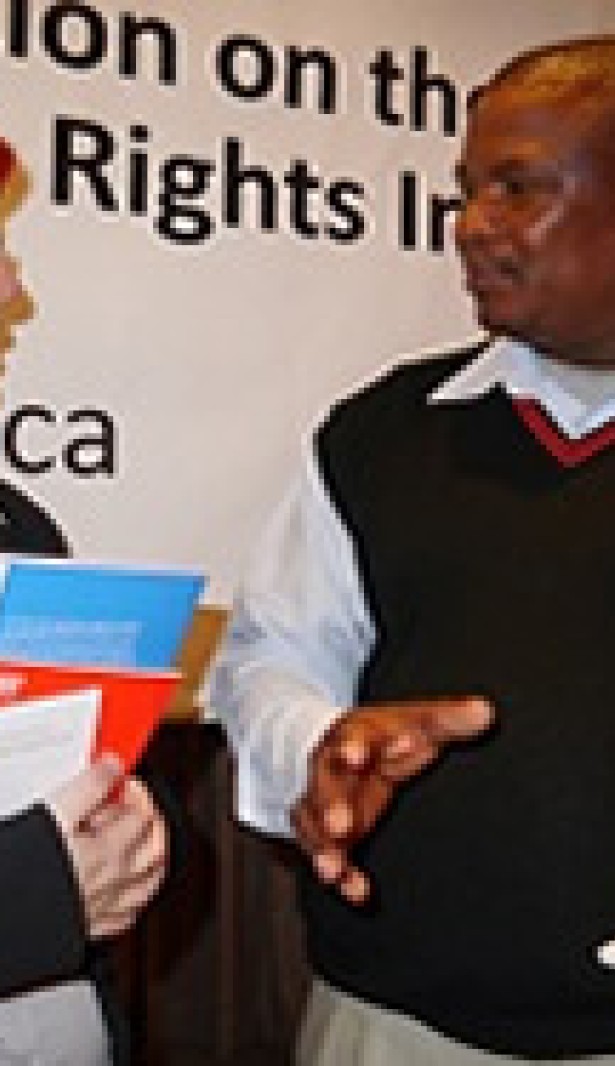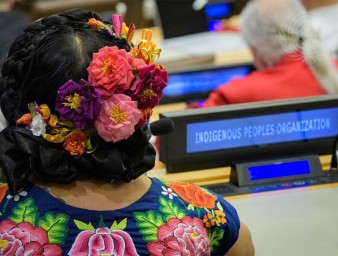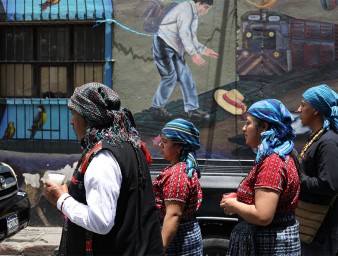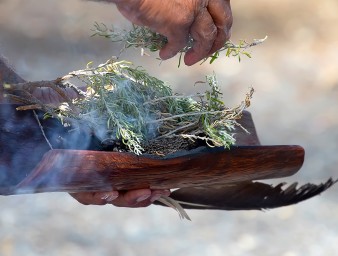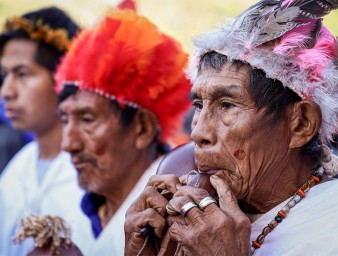Protecting the rights of indigenous peoples in Southern Africa
16 July 2014
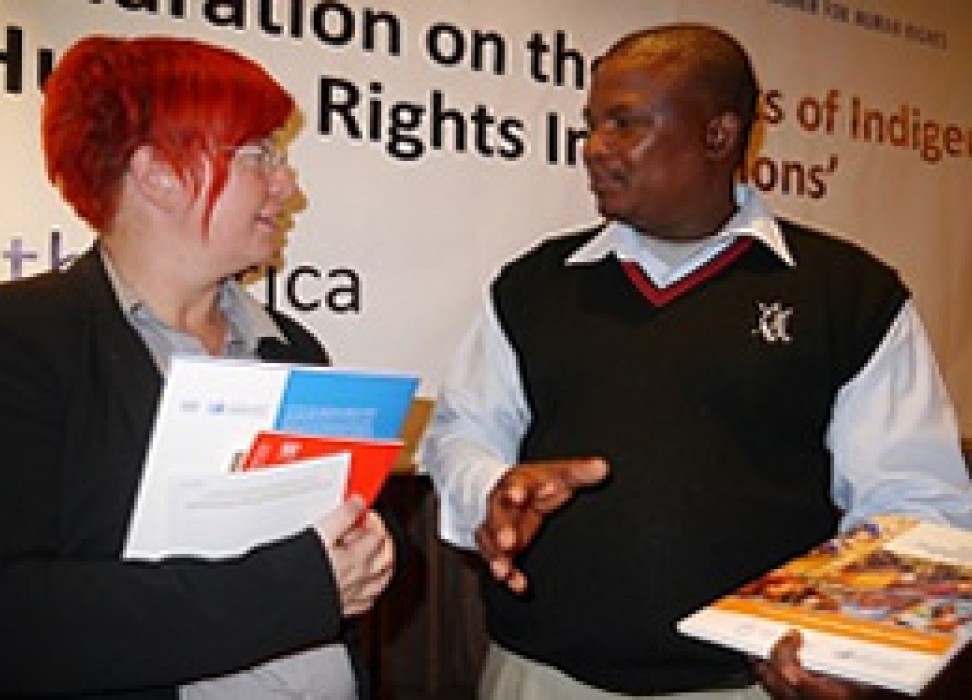
Christopher Dube comes from a San indigenous community in the Tsholotsho District in Zimbabwe. He says there are only 13 persons left in his community who can still speak their mother tongue and only few written records of the language exist. The community is making an effort to write down the words and to teach the language to the younger children, hoping they will be able to keep the language alive.
This is only one snapshot of the information that was shared among the participants of the launch of the publication titled “United Nations Declaration on the Rights of Indigenous Peoples: A Manual for National Human Rights Institutions.” The publication, which was launched during a regional workshop in Cape Town, South Africa, is a joint effort of the UN Human Rights Office and the Asia Pacific Forum of National Human Rights Institutions.
“I will now bring all the information on the rights of indigenous peoples back home to my community,” said Dube. “I will show the village heads the publications we received and I will read to them, trying to explain what I learned. I learned a lot but there is still so much that needs to be done.”
During the workshop, participants were trained to better address indigenous peoples’ rights, including by learning how to strengthen cooperation with national human rights institutions (NHRIs) to handle complaints or work on public inquiries concerning indigenous land rights, for example.
Participants’ discussions on the publication’s usefulness brought its purpose to life: to guide and support the different national actors in their efforts to work with indigenous peoples to promote and protect their rights.
“National Human Rights Institutions have the duty to understand with whom they are working and to what purpose, when working with indigenous peoples’ rights. If [the NHRIs] have no sensitivity and understanding, they might work against these communities, even if they had the best of intentions,” emphasised Eileen Rakow from the Office of the Ombudsman of Namibia.
“Put yourself in the shoes of the indigenous peoples and then you can start to begin to understand their issues” is the motto that her Office uses in their activities focusing on the indigenous peoples of Namibia.
In addition to increasing their knowledge on who is considered indigenous and what are the rights of indigenous peoples, participants learned about good practices in the area of awareness-raising on the UN Declaration on the Rights of Indigenous Peoples, adopted by the UN General Assembly in 2007.
“National human rights institutions have a critical responsibility to advocate for the rights of indigenous peoples and to promote knowledge, understanding and implementation of the Declaration,” stressed Samia Slimane of the UN Human Rights Office. “This consultation provided the opportunity to share our knowledge and experience and identify ways we can work most effectively to better promote and protect the rights of indigenous peoples in Southern Africa and the wider region.”
16 July 2014
